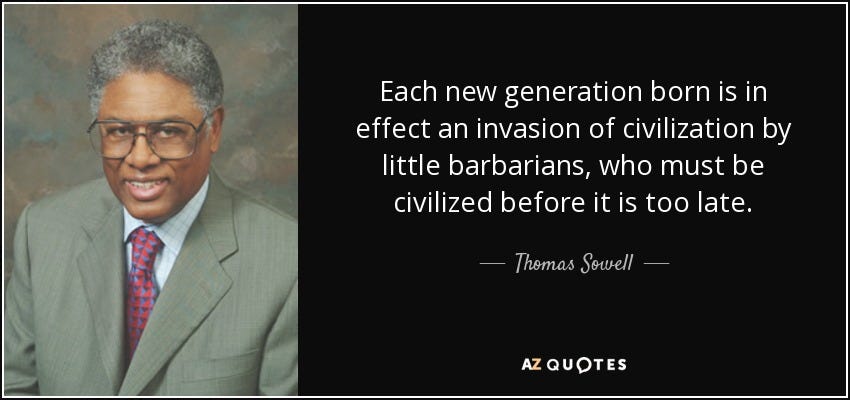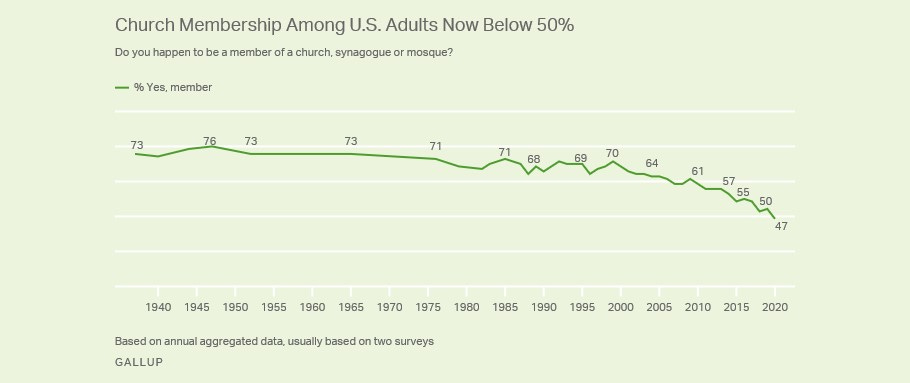The 7 Levers That Shift America’s Culture
The McDonald’s effect.
What do you think would happen if farmers just took a bag of seed, randomly tossed it into a field without regard for the time of year, and then expected to have a first-rate crop in the fall? We all know what would happen. They didn’t till the field. They didn’t water the crops. They didn’t put down any fertilizer or insecticide. They didn’t pull up the weeds. That farmer’s crop is going to be terrible. If he’s lucky, he may have some stunted crops growing in certain places, but he also may have nothing at all.
This is how it works with cultures, too, although far too many Americans have forgotten it, denied it, or just decided it isn’t worth the trouble.
Somehow, we get this across a wide range of areas. We understand that sports coaches are trying to create a culture on their teams. We get businesses trying to design a particular culture of hard work or taking care of the customer. We all (except the real idiots) get the difference between a domesticated animal who has been taught how to behave by humans (“What a cute dog! Can I pet him?”) and one that isn’t (“There’s a pack of wolves in the yard. Don’t go outside.”).
Yet so many people don’t recognize how much the culture we’ve created impacts our lives. I like to think of it as, “the McDonald’s effect.” Everyone thinks they’re not impacted by the culture, just like so many of us think we’re not impacted by McDonald’s ads. But, does anyone really think McDonald’s is spending 400 million dollars per year and not getting a return on their money? Of course, they are. How? They’re working tirelessly to stick their brand in your brain and then, eventually, when you eat at their restaurant, if you have a positive experience, you subconsciously connect it with their advertising. Then, what happens the next time you see the Golden Arches? You have a positive association with the meal that prompts you to want to repeat it. Over time, that can fade a little, fade a lot, or get locked in.
Much of the impact culture has on us works the same way. We like to think of it as conscious decisions we make, but it’s more like how a dog thinks. At first, a dog may be scared of people, then it sees its mother being petted and infers, “Those things are safe.” After you pet it and give it enough treats, it may turn into, “I feel good around this thing.” If it has enough positive experiences with different humans, it may turn into, “I should go up to these things so they can make me feel good.”
The different interlocking facets of our culture shape our behavior like this. Sometimes it’s hard to tell which part of the culture will have the biggest impact. One weak part of the culture may dominate or pull down all the others or one strong area may save us from all the other mistakes.
In America, we’ve gone rapidly backward across every one of these areas over the last few decades. How do we turn it around? By getting better in these same areas that we’ve declined in over time:
1) Parents: The biggest influence on kids is always going to be mom and dad. One of the big problems with that in an era where, depending on which statistics you believe, 40-50% of all couples get divorced, is that one parent doesn’t do as good a job as two. Statistically, kids raised in one-parent homes do worse than kids raised in two-parent homes in almost every area imaginable. The reality is that kids need a mom and a dad in the home and if they don’t get it, it’s going to leave scars. Maybe little scars in some cases, but often big scars that go on to have a huge impact on the culture when criminality, drug use, and out-of-wedlock births explode as a result. If things aren’t right at home, it reverberates across the rest of the culture.
2) Cultural norms: Even some of the worst cultures (see Afghanistan) can have at least a few great cultural norms.
The Pashtun idea of hospitality extends beyond the usual niceties of feeding and entertaining visitors and includes the obligation of protecting a guest and providing them with refuge if needed. Even if a guest is an outlaw on the run. Even if they or their families happen to be in conflict with the host's family.
Traditionally, Americans have had a lot of healthy norms, too. A Protestant work ethic. Southern hospitality. Frowning on divorce, having sex outside of marriage, and having children outside of marriage. Greatly valuing self-reliance and independence. Believing that each generation has a responsibility to make America better for the next generation than the current one. As we’ve stopped reinforcing these norms, our adherence to them as a society has become much shoddier and we’re all worse off for that.
3) Heroes: It’s not quite accurate to say, “Show me who a person admires, and I will show you who they are,” but it’s not far from the truth either. We get this on a certain level. If I told you nothing about two human beings except that one of them idolizes Ronald Reagan, Billy Graham, Larry Bird, Elon Musk, and Tim Tebow while the other idolizes Hillary Clinton, Richard Dawkins, LeBron James, George Soros, and RuPaul, you are probably going to be able to accurately guess quite a few differences between these people.
It works that way for cultures, too. Who we admire and why helps to shape our society. Are the people who get the most attention and praise in our society the sort of human beings that exemplify the values that will make our society better or not? A culture that primarily admires stud athletes, soldiers, and successful entrepreneurs is not going to look the same as a society that primarily admires influencers, reality TV stars, and do-anything-to-get-attention politicians.
4) Religion: All men are imperfect, but imperfect men who voluntarily go to church each week to get moral instruction on being better people are going to turn out to be much better human beings as a group than the ones that don’t. As the influence of the church in America drops, the level of morality, charity, and human decency is going to drop right along with it as surely as day follows night. That doesn’t mean the church is all good or perfect, it just means it’s better than the alternative. Much, much better.
5) Government: Our government doesn’t do much to make us better people, but they have proven very effective at making us worse via a long, slow process of moral erosion. The government in our country has undermined marriage, encouraged dependency, and fanned the flames of racial hatred. Also, those are just the policies. It doesn’t even take into account the divisive rhetoric of our politicians, who as a group seem to be some of the most dishonest, divisive, sociopathic people in our society that aren’t already locked up in prison.
6) Entertainment: Remember “Leave it to Beaver?” The Lone Ranger shooting the gun out of the hands of criminals? Superman, who was essentially a Jesus allegory? Married couples not even sleeping in the same bed on TV? At one point in our history, that’s the sort of entertainment kids in the country were immersed in as they grew up. Today, many young teens of the same age are looking at hardcore pornography, gratuitously murdering people in gory video games, chatting with weirdos in forums, and dealing with toxic abuse on social media. Not just our kids, but our whole culture is marinating in degeneracy, violence, immorality, and even glorified mental illness. Many people think this has no effect on them. These people are almost certainly wrong.
7) Schools: What are we teaching kids in school? Reading, writing, and arithmetic, or that they’re fragile and shouldn’t be sure of their gender? Are kids feeling the heat to excel…
…or are we primarily trying to convince them that they should have high esteem whether they’ve done anything to deserve it or not? When we have kids arriving at college protesting because people are allowed to say things they disagree with and declaring that they need safe spaces, it’s a clear sign something is very wrong in our schools.





I saw a debate once where one person said that an important reason why we have more teen pregnancy today than 100 years ago is because today the government is paying teenage girls to get pregnant. Her opponent replied that this was ridiculous, that no one would have a baby just to collect the modest payments welfare provides.
Okay then, so why do you suppose that teenage girls are getting pregnant? Whatever reason you give, is it not inevitable that if you said, "there's that reason, plus in addition we will give you some money", that that would lead some number of girls to decide to do it? Even if the amount was just $10, there are some number who would be undecided, not sure if they want to have a baby or not, or not sure if they want to risk unprotected sex or not, for whom the extra $10 would be what pushes them over the line to say, "oh, okay, I'll do it".
Excellent.